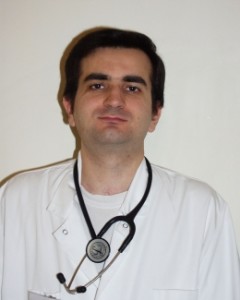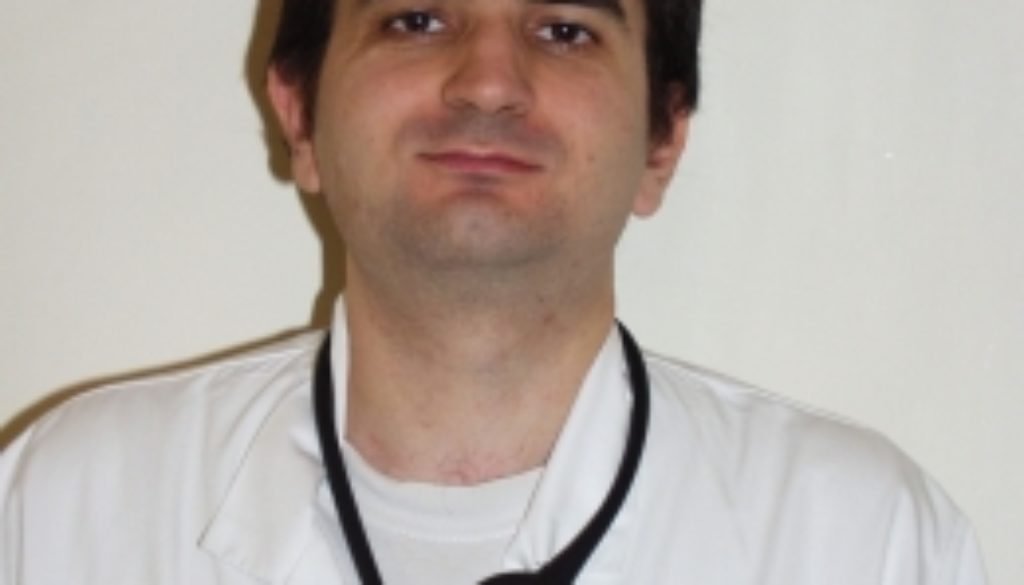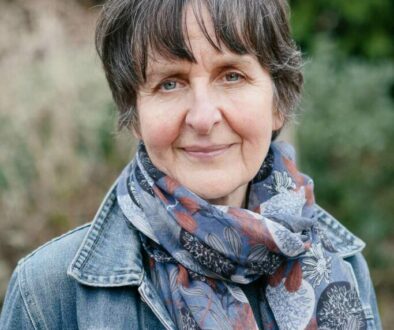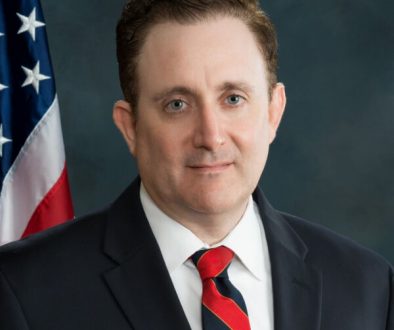Dr Bernard-Pellet on preventive medicine
Dr Bernard-Pellet explains why we should teach medical personnel and patients the art of healthy living through sensible lifestyle and nutrition.
 After completing his secondary school studies, Jerome Bernard-Pellet went on to obtain his medical degree at the Necker Faculty of Medicine in Paris. His keen interest in primary prevention saw him obtain additional qualifications in epidemiology and biostatistics.He is currently a general practitioner locum in Paris. Having decided to specialise in the field of nutrition, he became co-founder of the Association of Health Professionals for a Healthy diet (alimentation-responsable.com
After completing his secondary school studies, Jerome Bernard-Pellet went on to obtain his medical degree at the Necker Faculty of Medicine in Paris. His keen interest in primary prevention saw him obtain additional qualifications in epidemiology and biostatistics.He is currently a general practitioner locum in Paris. Having decided to specialise in the field of nutrition, he became co-founder of the Association of Health Professionals for a Healthy diet (alimentation-responsable.com  ), whose primary aim is to promote good health through better eating habits.\n\nJerome is a leading proponent of the benefits of a vegetarian diet, about which he lectures and debates throughout France.
), whose primary aim is to promote good health through better eating habits.\n\nJerome is a leading proponent of the benefits of a vegetarian diet, about which he lectures and debates throughout France.Antidote Europe (AE): You are clearly interested in preventive medicine. However, considering that this is a somewhat neglected subject in medical school curricula, what made you decide to go down that path?
Jerome Bernard-Pellet (JBP): In the course of our medical studies, we spend a fair amount of time in hospital wards where we see patients with terminal illness. It is striking to note that the vast majority of these conditions (type 2 diabetes, cancer, cardiovascular disease and neurodegenerative conditions) are largely preventable. If we could teach medical personnel and patients the art of healthy living, mainly through sensible lifestyle and nutrition, we would discover that much of this suffering is actually avoidable. In technical terms, we refer to this as primary prevention.
Sadly, primary prevention is seen as the poor cousin to western orthodox medicine. There is some effort made in the field of secondary prevention, which relies on early detection of disease. However, it makes far more sense to avoid getting sick in the first place than to receive treatment, even at an early stage, since we know that early diagnosis is not always 100% reliable. Sometimes early diagnosis may miss a genuine problem (false negative result). Worse still, early diagnosis may detect a problem that isn“t there (or that is self-limiting) in which case the patient will receive treatment unnecessarily (a false positive result), which shouldn“t be allowed to happen, especially in the case of a diagnosis of cancer that isn“t there. All the more reason why primary prevention should be the number one priority in the teaching and practice of medicine, but which sadly, is not the case.
AE: In your opinion, what are the most important steps that one should take to maintain positively good health?
JBP: This is actually a much more difficult question than it might seem. There are of course many ways in which to maintain good health. The main difficulty would be in trying to determine how to scientifically prioritise a list of 10 good health measures in order of importance to fit the global population. The reason for that is the difficulty in trying to identify or isolate the effect of any individual parameter when evaluating the efficacy of preventive measures.
Nonetheless, some healthy lifestyle habits are fairly obvious. A diet consisting of plenty of vegetables, whole grain cereals, legumes and fruit is key to the prevention of cancer, diabetes, obesity and cardiovascular disease. The Japanese who live on the island of Okinawa, and whose life expectancy is among the highest in the world, thrive on this diet. Cutting out toacco and consuming little to no alcohol are two other important factors.
But these measures alone are probably insufficient. It is becoming ever more apparent that, over the course of our lifetime, we are exposed to ever more chemical cocktails, whose long-term effects can be detrimental to our health. For this reason, we should choose organic produce in order to reduce our exposure to pesticide chemicals.
By the same token, we should keep exposure to products originating from the petrochemical industry to an absolute minimum. This would include household cleaning products, cosmetics, food preservatives and plastics in contact with food and drink, in particular plastic products with the code 7. A good motto is to eat little but eat well.
AE: What is your view on animal experimentation?
JBP: Any intellectually honest scientist understands that animal and human metabolism is different. For that reason, animal data cannot be used to predict human response.
In addition to being cruel, animal experimentation diverts precious financial and human resources away from more promising areas of research, including the non-invasive study of human populations (epidemiology). Animal testing also diverts resources away from scientific methods that are relevant to people, such as the study of human cells.
Animal experimentation also allows researchers to cherrypick the strain or species of animal that will provide them with the result they want, which is especially worrisome if the studies are funded by industry. That is no longer science, that is deceit.
We need to get rid of all of these practices and replace them with a fresh paradigm in biomedical research. Major drug disasters involving adverse drug reactions, such as Mediator, in addition to lesser known cases, should make us start to think. These drug disasters should make us realise that it is not our health that is necessarily foremost in the minds of these animal researchers. In fact, animal experimentation is a clever tool used to cover up defective chemicals and medical drugs.
We also need to move on from the belief that animal experiments are a necessary evil when in fact they represent bad science.
AE: If you were the Minster of Health, what would your priorities be to improve the current situation?
JBP: One of my priorities would be to separate industry and government from our health services. It is absurd that people employed by the pharmaceutical industry or in agribusiness should be appointed to positions in government or in regulatory bodies such as ANSES (French equivalent of DEFRA UK), EFSA (European Food Safety Authority) and EMA (European Medicines Agency). The multiple conflicts of interest border on the unbelievable. Imagine a situation where your neighbour, who happens to be a land surveyor, builds a wall that encroaches on your property and is then appointed to be the arbitrator to decide your case. You would consider this situation to be absurd and you would protest this obvious conflict of interest vigorously. And you would be right to do so. But that is exactly what is happening today in the field of pharmaceutical drugs and industrial chemicals, as well as in the food industry, but here the stakes are much higher since millions of human lives are involved.
It is bizarre that the pharmaceutical industry is allowed to conduct its own studies in order to get its products on to the market. When industry is allowed to do pretty much as it pleases, we see drug disasters on the scale of Vioxx, which surfaced in 2004. It came to light that the manufacturer, Merck, had not disclosed the toxic effects on the cardiovascular system of its blockbuster drug. The result was 30,000 dead in the USAalone. Strangely, the number of those who died in France has not been recorded by the health authorities, to the best of my knowledge. The animal tests conducted on Vioxx did nothing to prevent this drug disaster.
The more recent examples of adverse drug reactions show that no lessons have been learned and that nothing has changed. This clearly demonstrates the need for a completely autonomous health agency for approving medical drugs, chemical products and food safety. The study aims and methods should be transparent and published before the study begins and be financed only by public funds.
No person should be allowed to work in the drug, chemical or food industry either before or after their employment by a body such as ANSES or other national health agency. It“s just common sense. In this way, we would reduce the risk of fraudulent science and instead focus our efforts on good science.
AE: We thank you for this interview. Are there any additional comments that you would like to add?
JBP: I would like to tell your readers not to become victims of pessimism or fate. We must not feel sorry for ourselves but act instead. For too long we have allowed false priests to preach their version of health, with the collusion of government, much to our detriment. Let us do whatever is within our means to maintain good health and do what we can to fight the corruption prevalent in the system. The sincerity and commitment of those who genuinely work for the benefit of others (as opposed to those who pretend to do so) should be recognised. Those who work purely for personal gain should be named and shamed.
Since neither government nor health agencies are currently fulfilling their civic obligation, it remains for genuinely independent organisations and citizens to take charge. As a conscientious consumer, you have the power to boycott bad science by not purchasing animal tested products. Avoid purchasing products from companies whose practices you consider to be unethical. That will lead you to consume less but to be a better consumer. Become more aware. Ask yourself questions and put constructive questions to companies that you suspect of having unethical manufacturing practices and also to the politicians who allow these things to go on. Expose conflicts of interest through your own investigations and demand explanations from those who allow these practices to continue.




